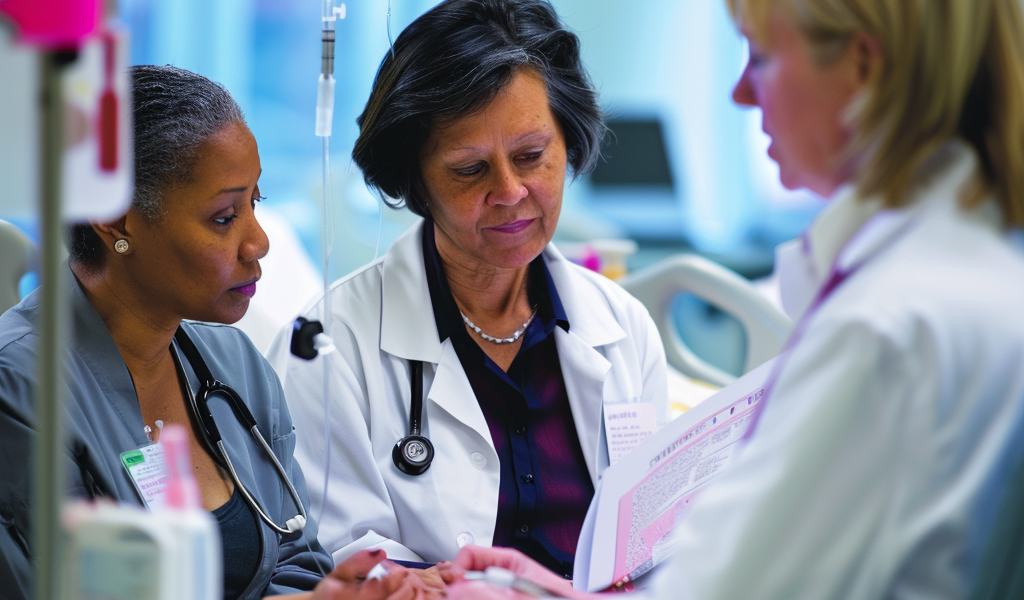In a groundbreaking study presented at the 2024 American Heart Association (AHA) Scientific Sessions in Chicago, researchers unveiled promising findings regarding the use of sacubitril/valsartan, a well-known heart failure medication, in reducing the risk of cardiomyopathy in cancer patients undergoing anthracycline chemotherapy. The study, known as the SARAH trial, demonstrated a remarkable 77% reduction in cardiomyopathy risk among participants.
Conducted with a focus on high-risk patients, the SARAH trial involved 114 adults, predominantly women diagnosed with breast cancer. The results highlighted significant improvements in global longitudinal strain (GLS) and left ventricular ejection fraction (LVEF), both critical measures of heart function. This research underscores the potential of sacubitril/valsartan to mitigate the cardiotoxic effects commonly associated with anthracycline-based chemotherapy regimens.
Dr. Marcley G. Bonatto from the University of São Paulo, the lead investigator of the trial, emphasized the importance of targeting high-risk patients. By focusing on this specific group, the trial aimed to prevent unnecessary exposure to adverse events in those less likely to develop cardiomyopathy. This strategic approach not only maximizes patient safety but also contributes to a better understanding of how to protect heart health in cancer treatments.
The findings from the SARAH trial have significant implications for oncologists and cardiologists alike. With anthracycline chemotherapy being a standard treatment for various cancers, the risk of cardiomyopathy has long been a concern for healthcare providers. The introduction of sacubitril/valsartan as a protective agent could change the landscape of cancer treatment, allowing patients to receive effective therapies without the added fear of heart complications.
As researchers continue to explore the relationship between cancer treatments and cardiovascular health, the SARAH trial serves as a critical stepping stone. The results not only pave the way for further studies but also provide hope for patients who face the dual challenge of battling cancer while preserving their heart health.
In addition to the immediate benefits observed in the trial, the research opens the door for future investigations into the long-term effects of sacubitril/valsartan in cancer patients. Understanding how this medication interacts with various chemotherapy agents could lead to optimized treatment protocols that prioritize both cancer control and cardiovascular safety.
As the medical community digests these findings, the potential for sacubitril/valsartan to become a standard part of care for high-risk cancer patients is gaining traction. Oncologists may soon consider this heart failure drug as a proactive measure to safeguard their patients’ heart health during chemotherapy.
Furthermore, the SARAH trial highlights the ongoing need for interdisciplinary collaboration between oncology and cardiology. By working together, these specialties can develop comprehensive care plans that address the complex needs of cancer patients, particularly those at risk for heart-related complications.
The study’s results are a reminder of the importance of personalized medicine in cancer treatment. As more data emerges regarding the interactions between cancer therapies and cardiovascular health, tailored approaches will likely become the norm, ensuring that patients receive the most effective and safest treatments available.
As the AHA Scientific Sessions continue to showcase innovative research, the findings from the SARAH trial stand out as a beacon of hope for cancer patients and their healthcare providers. The potential to reduce cardiomyopathy risk while undergoing chemotherapy represents a significant advancement in patient care, emphasizing the need for continued research and collaboration in the fight against cancer.
In conclusion, the SARAH trial’s findings mark a pivotal moment in the intersection of oncology and cardiology, offering new strategies for managing the cardiovascular risks associated with cancer treatments. As the medical community moves forward, the hope is to refine treatment protocols that not only target cancer but also protect the heart, ultimately improving the quality of life for patients navigating their cancer journey.





